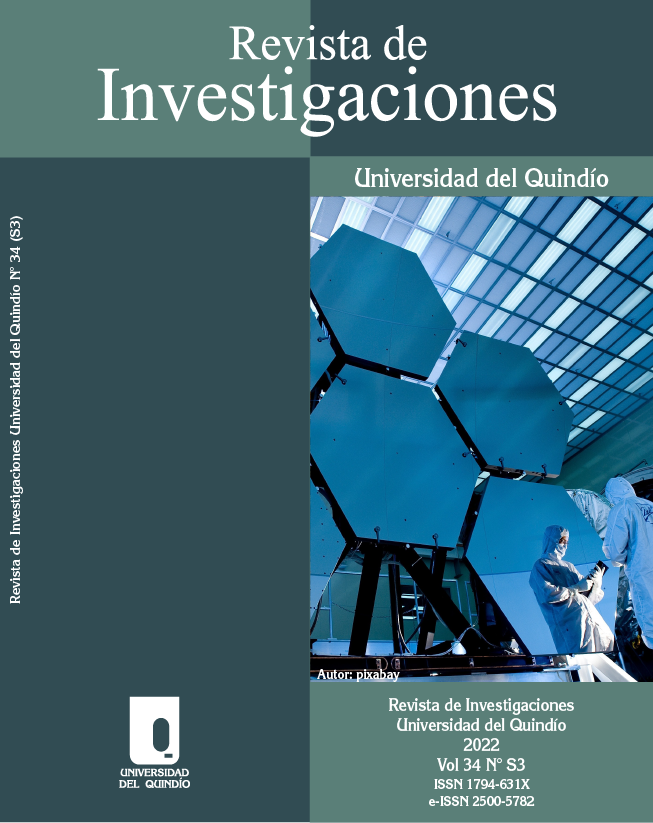Seguridad psicológica individual en el período posterior al aislamiento como sujeto de investigación científica
DOI:
https://doi.org/10.33975/riuq.vol34nS3.1076Palabras clave:
psychosocial impacts, personalidad, post-aislamiento, COVID-19, impactos psicosocialesResumen
La seguridad psicológica de una persona es un indicador de una persona psicológicamente sana y capaz de hacer frente a las amenazas sociales, pandémicas, informativas, psicológicas y de otro tipo. La repentina propagación de un nuevo tipo de infección por coronavirus, COVID-19, desde diciembre de 2019 ha desestabilizado significativamente a la sociedad. Este estudio tiene como objetivo investigar y analizar la seguridad psicológica individual como tema de investigación científica en el período posterior al aislamiento. Para cumplir con ese objetivo, se emplean una variedad de métodos científicos, que incluyen análisis y síntesis de contenido científico sobre los temas en estudio, método de sociometría, resumen y agrupación de materiales de observación estadística. Dados los resultados, se puede concluir que la rápida propagación de la histeria colectiva y el pánico resultante de la COVID-19 se ha caracterizado por constantes problemas psicológicos en público, que consisten en una disminución del nivel de seguridad psicológica. Ese factor parece estar asociado con las estrategias de afrontamiento adoptadas, el nivel de conciencia, las variables sociodemográficas, los hábitos de las personas y cómo un individuo utiliza los medios e interpreta la información.
Descargas
Citas
Alvarez, F. E., Argente, D., & Lipspi, F. (2020). A simple planning problem for covid-19 lockdown (No. w26981). National Bureau of Economic Research. 14, 1-33.
Aminova, D.K. (2020). Valuable meanings of security categories in the psychosomatic field of Dagestanis during the COVID-19 threat period. International Journal of Medicine and Psychology. 2020. 3(5), 34-42.
Baeva, I.A. (2019). Psychological safety - a resource of psychological well-being and human development in the educational environment and the social world. In the collection: Psychological and socio-pedagogical aspects of the safety of the educational environment, a collection of materials of the interregional scientific and practical conference with international participation, 21, 6-9.
Barbisch, D., Koenig, K. L., & Shih, F. Y. (2015). Is there a case for quarantine? Perspectives from SARS to Ebola. Disaster medicine and public health preparedness, 9(5), 547-553.
Belyaeva, P.I. (2013). Psychological safety of the personality of a younger student in the educational environment of the school: dis. ... candidate of psychological sciences: 19.00.07. Veliky Novgorod, 200-238
Cao, W., Fang, Z., Hou, G., Han, M., Xu, X., Dong, J., & Zheng, J. (2020). The psychological impact of the COVID-19 epidemic on college students in China. Psychiatry research, 287, 112934.
Clark T.R. The 4 Stages of Psychological Safety. Posted on November 17, 2019. URL: http://adigaskell.org/2019/11/17/the-4-stages-of-psychological-safety/ (access date: 02.26. 2022).
Depoux, A., Martin, S., Karafillakis, E., Preet, R., Wilder-Smith, A., & Larson, H. (2020). The pandemic of social media panic travels faster than the COVID-19 outbreak. Journal of travel medicine, 27(3), taaa031.
Dubey, S., Biswas, P., Ghosh, R., Chatterjee, S., Dubey, M. J., Chatterjee, S., ... & Lavie, C. J. (2020). Psychosocial impact of COVID-19. Diabetes & Metabolic Syndrome: clinical research & reviews, 14(5), 779-788.
Edmondson, A. C., & Lei, Z. (2014). Psychological safety: The history, renaissance, and future of an interpersonal construct. Annual review of organizational psychology and organizational behavior, 1(1), 23-43.
Figueroa, C. A., & Aguilera, A. (2020). The need for a mental health technology revolution in the COVID-19 pandemic. Frontiers in Psychiatry, 11, 523.
Garcia-Castrillo, L., Petrino, R., Leach, R., Dodt, C., Behringer, W., Khoury, A., & Sabbe, M. (2020). European Society For Emergency Medicine position paper on emergency medical systems’ response to COVID-19. European Journal of Emergency Medicine. 27,, 174-177.
Kim, S., Lee, H., & Connerton, T. P. (2020). How psychological safety affects team performance: mediating role of efficacy and learning behavior. Frontiers in psychology, 11, 1581.
Lai, C. C., Shih, T. P., Ko, W. C., Tang, H. J., & Hsueh, P. R. (2020). Severe acute respiratory syndrome coronavirus 2 (SARS-CoV-2) and coronavirus disease-2019 (COVID-19): The epidemic and the challenges. International journal of antimicrobial agents, 55(3), 105924.
Li, L. Z., & Wang, S. (2020). Prevalence and predictors of general psychiatric disorders and loneliness during COVID-19 in the United Kingdom. Psychiatry research, 291, 113267.
Lomakina Ya. (2021). COVID-depression: whether people began to suffer from mental disorders more often. RBC. Article from 02.02.2021 URL: https://trends.rbc.ru/trends/social/6018289f9a7947ead2f348f8 (access date: 25.02.2022).
Mikhalkin N.V. (2012). Social psychology. Textbook. Moscow. 230-255.
Orgilés, M., Morales, A., Delvecchio, E., Mazzeschi, C., & Espada, J. P. (2020). Immediate psychological effects of the COVID-19 quarantine in youth from Italy and Spain. Frontiers in psychology, 2986.
Ovchinnikova, L.A.(2021). Analysis of psychological aspects of distance learning for students of the Pedagogical Institute. International Journal of Medicine and Psychology. 3, 30 - 36.
Passavanti, M., Argentieri, A., Barbieri, D. M., Lou, B., Wijayaratna, K., Mirhosseini, A. S. F., ... & Ho, C. H. (2021). The psychological impact of COVID-19 and restrictive measures in the world. Journal of affective disorders, 283, 36-51.
Saladino, V., Algeri, D., & Auriemma, V. (2020). The psychological and social impact of Covid-19: new perspectives of well-being. Frontiers in psychology, 2550.
Sukhov, A.N. (2002). Social psychology of security: Proc. allowance: For university students. M.: Academia. 249 p.
Zanardo, V., Manghina, V., Giliberti, L., Vettore, M., Severino, L., & Straface, G. (2020). Psychological impact of COVID‐19 quarantine measures in northeastern Italy on mothers in the immediate postpartum period. International Journal of Gynecology & Obstetrics, 150(2), 184-188.
Descargas
Publicado
Cómo citar
Número
Sección
Licencia
Derechos de autor 2022 Revista de Investigaciones Universidad del Quindío

Esta obra está bajo una licencia internacional Creative Commons Atribución-NoComercial-SinDerivadas 4.0.


